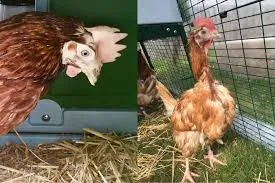Chicken Feed Pellet Machine for Efficient Farm Production and Sustainable Livestock Nutrition
វិច្ឆិកា . 08, 2024 09:36 Back to list
Chicken Feed Pellet Machine for Efficient Farm Production and Sustainable Livestock Nutrition
Pellet Machines for Chicken Feed Enhancing Poultry Nutrition
In the ever-evolving world of poultry farming, providing high-quality nutrition to chickens is critical for optimizing their health and productivity. One of the key innovations that has significantly influenced feed production is the advent of pellet machines designed specifically for creating chicken feed pellets. These machines play a pivotal role in transforming raw materials into nutritious and easily digestible feed, promoting better growth rates, feed efficiency, and overall well-being in poultry.
The Importance of Feed Pellets
Feed pellets are a concentrated source of nutrition that combines various raw ingredients such as grains, vitamins, minerals, and protein sources. The pelleting process involves grinding these ingredients into a fine powder, mixing them, and then forming them into small, uniform pellets through heat and pressure. This method not only enhances the palatability of the feed but also improves its digestibility. Chickens are more likely to consume pellets than loose feed, leading to better feed conversion ratios.
Moreover, pelleting helps in reducing feed wastage and controlling the dust that often accompanies loose feed. Dust can be detrimental to both the health of birds and the overall hygiene of the poultry house. By using pelletized feed, farmers can ensure that their chickens receive a well-balanced diet without the clutter and mess associated with traditional feeding methods.
Benefits of Using Pellet Machines
Investing in a pellet machine for chicken feed has numerous benefits for poultry farmers. Here are some key advantages
1. Nutritional Consistency Pellet machines ensure that each pellet contains a consistent amount of nutrients. This uniformity is crucial for maintaining the health and productivity of chickens, as it allows farmers to provide a balanced diet tailored to the specific needs of their flock.
2. Enhanced Digestion The pelleting process, which includes steam conditioning, helps break down starches and proteins, making them easier for chickens to digest. This leads to better nutrient absorption, which is essential for growth and egg production.
3. Reduced Feed Costs By utilizing a pellet machine, farmers can produce their own feed efficiently and at a lower cost compared to purchasing pre-packaged feed. This not only gives farmers control over ingredient quality but also allows them to adapt their feed formulation based on local availability and seasonal variations.
pellet machine for chicken feed

4. Improved Animal Health The use of pelletized feed has been linked to a decrease in certain health issues in chickens, such as gastrointestinal disturbances. Additionally, the reduction of feed dust contributes to better respiratory health among birds.
5. Flock Management With a pellet machine, farmers can produce feed in varying sizes and textures suitable for different age groups or specific health conditions. This level of customization enhances flock management and ensures that all birds receive appropriate nutrition.
Types of Pellet Machines
There are several types of pellet machines available on the market, ranging from small-scale, household models to large industrial machines designed for high-volume production. The choice of machine often depends on the scale of poultry farming operations and budgetary considerations. Common types include
- Flat Die Pellet Mills These machines are typically used for small to medium-scale operations. They are known for their simplicity and ease of maintenance.
- Ring Die Pellet Mills More suited for large-scale production, these machines can produce a higher volume of pellets more efficiently than flat die models. They are ideal for farmers looking to scale up their operations.
- Portable Pellet Mills For those who prefer flexibility, portable pellet mills allow farmers to produce feed on-site, ensuring that fresh feed is always available.
Conclusion
Pellet machines for chicken feed represent a significant advancement in poultry nutrition. By consolidating ingredients into a compact, digestible form, these machines facilitate improved growth, health, and productivity in chickens. For poultry farmers looking to enhance their feed production capabilities and optimize the well-being of their birds, investing in a pellet machine is a wise decision that holds the promise of better management practices and improved economic returns. As the poultry industry continues to evolve, such innovations will be crucial in meeting the nutritional demands of chickens while also contributing to sustainable farming practices.
-
High Performance Exhaust Fan – Efficient Ventilation Solutions for Home
NewsJun.10,2025
-
High-Quality Gestation Pen for Sows Durable Mobile Pig Pen & Simple Pig Pen Solutions
NewsJun.10,2025
-
High Quality Rabbit Cage Double Tier Designs & Welded Wire Mesh Supplier
NewsJun.10,2025
-
Floating Fish Feed Machine - High Efficiency Floating Fish Feed Extruder for Small Scale Production
NewsJun.10,2025
-
Premium Poultry Housing Solutions Mobile & Commercial Free Range Options
NewsJun.10,2025
-
Industrial FRP Fans Corrosion-Resistant Blades & Centrifugal Systems
NewsJun.09,2025






